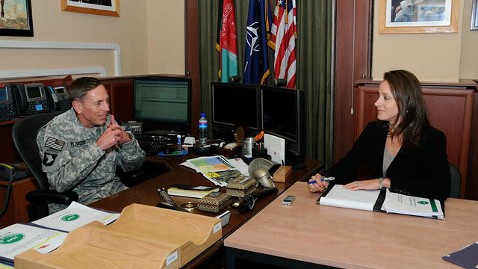Petraeus Investigation: When and How the FBI Can Access Email Accounts

PaulaBroadwell.com
So how and when can the FBI access a citizen's personal email account? That is a key issue in the investigation surrounding General David Petraeus.
The governing law is the Stored Communications Act, which provides that a "government entity" may require a provider of electronic communication service to disclose "contents of a wire or electronic communication" that has been in storage for 180 days or less, as long as it has a warrant. A warrant requires a specific showing of probable cause that a particular crime is being committed.
If the email has been in storage for 180 days or more, the government must provide an administrative subpoena or a court order. This is a less exacting standard that does not require probable cause.
But what about if the email is the private account of a government official - such as the director of the CIA? Here there could be some exceptions.
For one, people with high security positions often sign disclosure forms, saying they could waive their rights to private email accounts. Also, standards are more lax if the government is accessing or investigating the use of a government email account.
"The million dollar question," said Stephen I. Vladeck of American University Washington College of Law, "is why, before it became clear that General Petraeus was involved in this investigation, was it such a high priority for the FBI in the first place? The answer might be that someone just called in a favor."
Vladeck said that the FBI might flag a cyber harassment claim between two citizens, but absent a large threat or a deeper connection to another ongoing investigation they would not drop everything to investigate.
Catherine Crump of the ACLU said that until the details come out it is almost impossible to draw conclusions regarding the government's action.
In broad terms, civil libertarians believe the government should always have a warrant to access email even if it is more than 180 days old.
Crump said she believes that if the government got a warrant to access historical emails, and then even got another one when it discovered it needed more, it was complying with the law.
If, on the other hand, the government was monitoring emails in real time, that could raise questions.
"If there is a lesson here, it is about how incredibly difficult it is for anyone to do anything anonymously," said Crump. "You leave an electronic trail wherever you go. Given this new reality in which we all create permanent records of everything we say and do, it is all the more important that law enforcement be subjected to clear rules about what they can or cannot do."